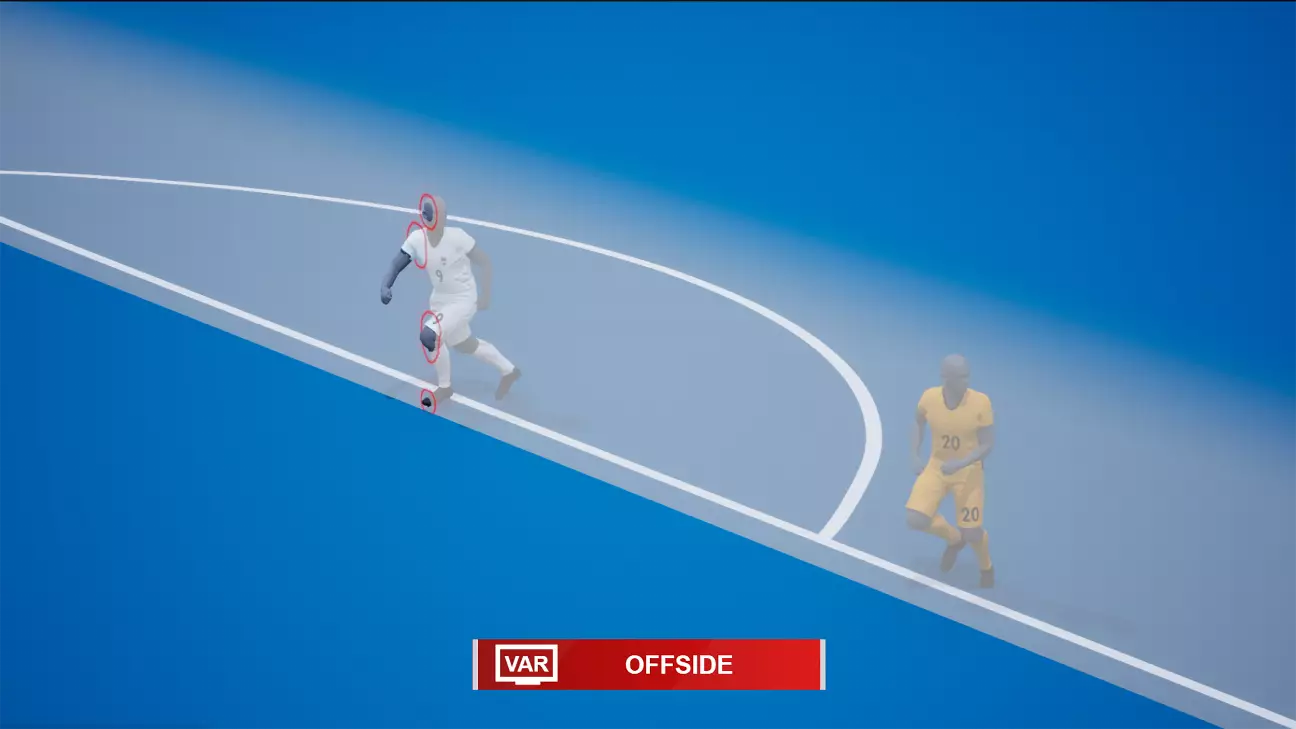The implementation of semi-automated offside technology (SAOT) in the Premier League has been met with a mix of anticipation and frustration. After a unanimous decision by clubs to adopt the technology, hopes were high for a swift transition. However, recent reports indicate that the roll-out has been postponed, with the league’s stakeholders expressing concerns about the reliability of the system.
Initially, plans were laid out for the Premier League to embrace SAOT following one of the autumn international breaks, with October appearing to be a likely timeline. However, it has been revealed during a recent Premier League shareholders’ meeting that the technology is not ready for use, potentially delaying its introduction until 2025. This presents a conundrum: if the technology isn’t reliable enough for live matches, is it appropriate to consider its implementation in the current season? The goal is to enhance transparency and accuracy in officiating, yet the lingering uncertainty raises doubts about whether this ambitious timeline can be realistically achieved.
The movements made by European counterparts such as Serie A and La Liga provide a case study for the Premier League. Serie A was the first to adopt SAOT in January 2023, following a significant VAR controversy that cost Juventus a crucial goal. La Liga followed suit for the start of the current season, enhancing the user experience and minimizing delays. Successful implementation in these leagues reinforces the pressure on the Premier League to keep pace with international standards, but it also casts a shadow on its own capabilities in delivering consistent officiating standards.
SAOT offers several advantages over traditional VAR technology. One of its key benefits is the speed it brings to decision-making. The technology reduces the average check time by about 31 seconds, reducing interruptions during gameplay. Additionally, the visual representation of offside decisions is vastly improved, moving away from the cumbersome lines displayed on broadcast cameras to a sleek, more intuitive presentation that enhances viewer understanding. The dilemma for the Premier League is weighing these advantages against the current unreliability of the technology.
Recent matches have illuminated the pressing need for the adoption of semi-automated technology. High-profile errors, such as the disallowed goal for Luis Díaz during a match against Tottenham, highlight systemic flaws in communication among VAR officials—not simply technological inaccuracies. Steve Cooper, the manager of Leicester City, lamented an “awful human error” that undermined the integrity of a game, which was exacerbated by the perception that the VAR system is too inconsistent and opaque. Such incidents serve as a clarion call for change; however, they also point to the limitations of technology, which cannot remedy fundamental miscommunication among match officials.
As the Premier League considers its next steps, the challenge lies in ensuring the technology is robust enough for live-action scrutiny while maintaining the integrity of the game. Extensive testing will need to continue, but the push for timely delivery must also be balanced with caution. The possibility of delaying implementation until the technology is fully reliable could serve as a protective measure against future controversies, a strategy already used in other leagues.
While the transition to semi-automated offside technology may hold the promise of enhanced accuracy and efficiency in officiating within the Premier League, the current delays underscore the complexities involved in such a significant shift. The league is at a crossroads: the need to modernize officiating practices conflicts with the insistence on maintaining reliability. As it stands, the hope for 2025 may feel distant, but the impetus for evolution is undeniable. In pursuing this innovative route, the Premier League must remain vigilant about the integrity of its officiating standards, lest it fall further behind its European peers.

